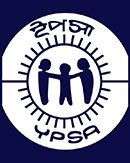Project Area: Climate Change Adaptation.
Project Funded By: Every Drop Matters
Supported by: UNDP Bangladesh
Implemented by : Young Power in Social Action (YPSA).
Working/Project Area: 5, 18,39,40,41 No ward of Chittagong City Corporation.
Project Duration: 12 Months, 1st February 2013 to 31st January 2014.
Stakeholders & Beneficiaries
The main stakeholders of the project is 8,400 children of those schools and 25,000 poor and vulnerable people nearby the shelters from the catchments areas of the 12 vulnerable cyclone shelters. And around 50,000 community people of the project areas will be indirectly benefited from the project.
Background of the project: Due to climate change,Bangladeshis facing sea-level rising and frequent severity of cyclonic flooding. Being a coastal city it’s in high risk of climate change effects and natural disasters.
Since 1960, 2000 cyclone shelters were built. But the water and sanitation facilities in these shelters are in poor condition. According the quick assessment conducted in 5, 18, 39, 40 and 41 no wards of Chittagong City Corporation it found that 80% shelter lack safe water, 60% latrines are useless, 60% are vulnerable in climate change events. As a result of it incidence of water borne diseases during and after any climate changes events are increased. Vulnerable groups including children and elderly were most affected by this situation. All the cyclone shelters used as primary schools where 90% children come from poor families. Due to absence of safe water and sanitation facilities, most of the time children effected by water born diseases and they couldn’t attend school regularly and the poor families compel to spent money for treatment. There has no separate toilet facilities for women or girls as a result of it they do not want to use the existing facilities and they face urinary diseases.
Objectives
Being a coastal area,Chittagongcity is highly vulnerable in terms of climate change effects. Water and sanitation facilities are in poor condition in cyclone shelters, causes incidence of water borne diseases. Considering the above situation, YPSA wishes to implement a project with the aim to improve quality of life through ensuring water supply and basic sanitation provision in cyclone shelters in targeted areas ofBangladesh’s cyclone belt. The Project will strengthen the capacity of school management committee and volunteers to play an active role for ensuring safe water and sanitation in the shelters through community management mechanism. Through raising awareness on the uses of safe drinking water and sanitary latrine will increase which will contribute to reduce health risks and involve people in climate change adaptation mechanism.
Major Activities
- Installation of 12 safe water points and 12 six chambered sanitary latrines in selected 12 cyclone shelters
- Organize 6 orientation and workshop to strengthen school management committee (SMC).
- Develop 12 community volunteers groups in each cyclone shelter as a hands of SMC
- Ensure gender sensitive sanitation schemes such as separate latrines in 12 cyclone shelters
- Provide 06 training for School Management committee for planning, implementation.
- Provide training for SMC and volunteers on safe water and hygienic sanitation context.
- Develop 05 demonstration centers (Water and Sanitation) in 5 wards as a model
- Organize court yard sessions for community people
- Organize community meeting
- Organize cultural activities
- Organize school events like parents meeting, awareness sessions for students, teachers meeting, student’s camp.
- Publish and distribute poster, information board and pictorial fact sheet
Expected outcome
- Safe water and sanitary services are provided in 12 targeted cyclone shelters in coastal belt areas of Chittagong City Corporation
- Community capacity on construction, operation and management water & sanitation facilities through inclusive and practical community based approaches are developed in 12 cyclone centers
- Community awareness in 12 cyclone centers are increased to promote responsible water resource management and sanitation hygiene.
[event_news taged=”UDM”]
